The world is no longer America’s oyster. China looms like a giant cloud spilling beyond Asian skies. What is India to do to cope with these shifting geopolitics?

THERE’S no dearth of post-scripts to the End of History. A quarter century ago, America was presumed to have become the sole gravitational centre of the world, with a monopoly over punitive power and soft power alike. And liberal democracy was to rain down over the universe. One sign of how the script has changed resides in an informal proposal, broached over a decade ago, that visualises a cosy relationship between the United States and China. Even without being implemented, just as a potential future, it sends waves of nervous anticipation—filling a whole host of US allies in different Asian capitals with a vague sense of dread.
As a concept, the Group of Two or G2 formalises what everyone by now implicitly concedes about the global distribution of power: we are really in a bipolar era. G2, if it ever comes to pass, will seek to bring the world’s two most powerful nations—the US and China—closer so they could address and look to resolve all major challenges together. The idea has been endorsed by several leading American foreign policy practitioners since 2005, when it was first floated. But George W. Bush and Barack Obama as US presidents were smart enough to keep the proposal on the table while dealing with China, without really putting it into force.
Under Donald Trump’s presidency, are things about to change?
From the time the Soviet Union disintegrated in 1991, the US had been the sole superpower dominating the world— and it behaved like one. However, today that world looks like a historical relic. China looms large not only in Asia but everywhere, and seriously threatens American hegemony. The G2 concept is a pragmatic response to this changed reality: in effect, it will mean the US has been forced to make space and rearrange the political order because greater advantage may lie in non-conflictual cohabitation.
This story is from the {{IssueName}} edition of {{MagazineName}}.
Start your 7-day Magzter GOLD free trial to access thousands of curated premium stories, and 9,000+ magazines and newspapers.
Already a subscriber ? Sign In
This story is from the {{IssueName}} edition of {{MagazineName}}.
Start your 7-day Magzter GOLD free trial to access thousands of curated premium stories, and 9,000+ magazines and newspapers.
Already a subscriber? Sign In

Trump's White House 'Waapsi'
Donald Trump's victory in the US presidential election may very well mean an end to democracy in the near future

IMT Ghaziabad hosted its Annual Convocation Ceremony for the Class of 2024
Shri Suresh Narayanan, Chairman Managing Director of Nestlé India Limited, congratulated and motivated graduates at IMT Ghaziabad's Convocation 2024
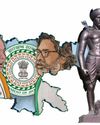
Identity and 'Infiltrators'
The Jharkhand Assembly election has emerged as a high-stakes political contest, with the battle for power intensifying between key players in the state.
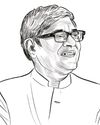
Beyond Deadlines
Bibek Debroy could engage with even those who were not aligned with his politics or economics

Portraying Absence
Exhibits at a group art show in Kolkata examine existence in the absence

Of Rivers, Jungles and Mountains
In Adivasi poetry, everything breathes, everything is alive and nothing is inferior to humans
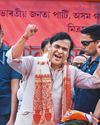
Hemant Versus Himanta
Himanta Biswa Sarma brings his hate bandwagon to Jharkhand to rattle Hemant Soren’s tribal identity politics
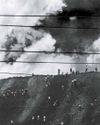
A Smouldering Wasteland
As Jharkhand goes to the polls, people living in and around Jharia coalfield have just one request for the administration—a life free from smoke, fear and danger for their children
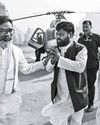
Search for a Narrative
By demanding a separate Sarna Code for the tribals, Hemant Soren has offered the larger issue of tribal identity before the voters
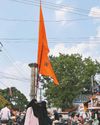
The Historic Bonhomie
While the BJP Is trying to invoke the trope of Bangladeshi infiltrators”, the ground reality paints a different picture pertaining to the historical significance of Muslim-Adivasi camaraderie